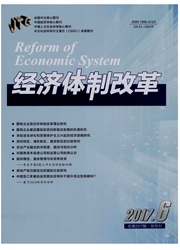

 中文摘要:
中文摘要:
本文通过中外比较和实证研究发现,各国金融包容度有显著差异,收入水平、教育程度、通讯技术以及政策是影响金融包容的重要因素,对金融包容度有负面效应的是老龄化、就业比例低、收入不平等。我国经济发展不平衡,构建包容性金融体系要采取区域差异化战略。中西部地区着眼于缩小收入差距,提高教育水平及扩大就业;东部地区则应创新金融产品和服务,普及金融知识,满足弱势群体的金融需求。
 英文摘要:
英文摘要:
There is a significant difference of financial inclusion across the worldwith China ranked in the middle level by comparison. Income level, education degree, communication technology and policy are the key factors influencing financial inclusion. The factors with negative effects are aging, low employment and income inequality. China's economic development is imbalance. The construction of inclusive financial system should take regional differentiation strategy. The central and western regions should focus on the use of incentive policies to narrow the income gap, improve the level of education and employment; the eastern region should do more financial innovation and raise the residents' financial literacy in order to meet the vulnerable groups of financial needs.
 同期刊论文项目
同期刊论文项目
 同项目期刊论文
同项目期刊论文
 期刊信息
期刊信息
